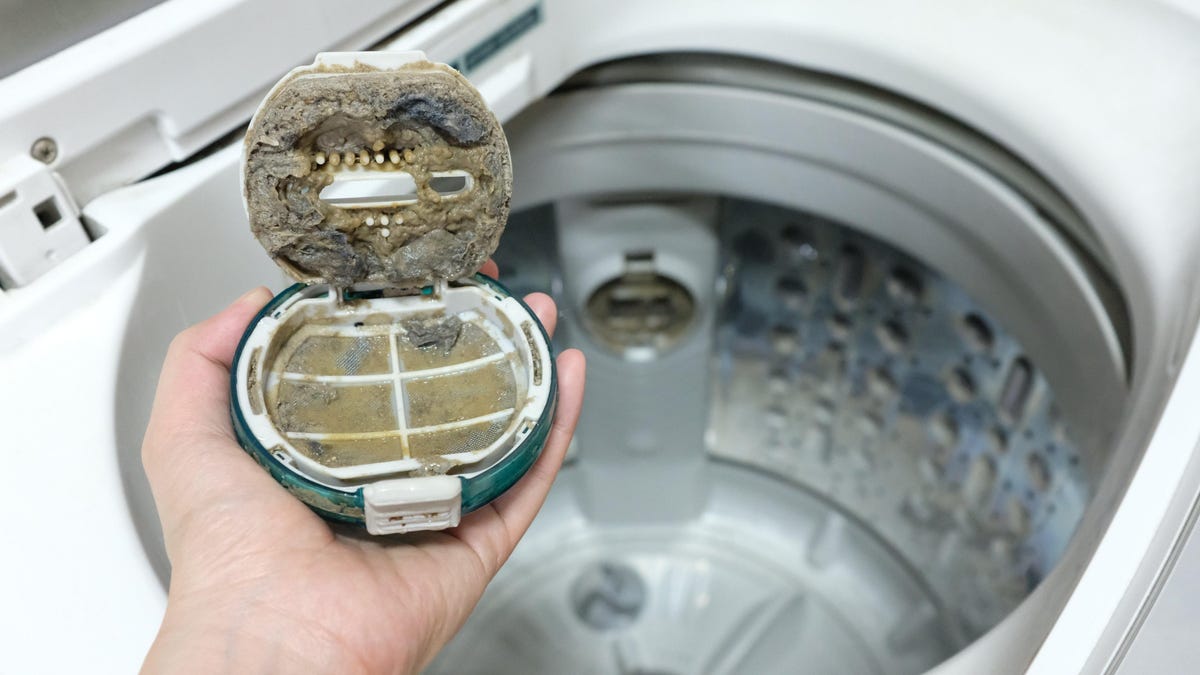You’re probably familiar with the lint trap on your dryer, and, ideally, clean it after every load of laundry. But did you know that your washing machine has a filter, too? If that’s news to you, that probably means yours has never been cleaned. But don’t worry: Once you know where to find it, it’s a pretty easy job. Here’s what to know.
Before removing the filter, make sure your washing machine is turned off—with all knobs in the “off” position—and unplugged.
The most straightforward way to locate your washing machine’s filter is to check the owner’s manual. If you no longer have yours—or inherited the appliances from the previous owners when you purchased your home—you should be able to find it online.
Start by searching for the manufacturer + your washer’s model number—which is typically located on a sticker either inside the door, or on the back. If that doesn’t work, you can try looking it up on dedicated sites like Manualsonline.com or Manual Owl. In addition to showing you where the filter is located on your machine, the manual may also provide information on how—and how often—you should clean it.
Though every model is different, certain types of washing machines tend to have filters in the same spots:
- Top-loading machines: In the center of the agitator (unscrew it), on the top rim of the washer tub (a screen you can pull out), or at the end of the drainage hose
- Front-loading machines: Usually on the front of the appliance (though sometimes on the back) and concealed by a hatch
- Newer, high-efficiency machines: These typically don’t have a filter
Have an empty bucket and some rags ready when you remove the filter, because it’s probably going to be full of gross water, wet lint, and who knows what else. Once the filter is out, remove anything left in the filter compartment—it might help to shine a flashlight inside the area for a better view.
Next, remove as much of the gunk and debris from the filter as you can, then thoroughly rinse it with clean, warm water. Use an old toothbrush, sponge, rag, and/or cotton swabs to clean any parts of the filter that are still dirty, using a solution of mild dish soap and warm water, or a solution of half water and half white vinegar. When the gunk is gone, rinse the filter in clean, warm water, then dry it with a lint-free cloth.
So the filter doesn’t get dirty again immediately, Barbara Costello, better known as “Brunch with Babs” on social media, suggests spraying the inside of the filter compartment with white vinegar and letting it dry before replacing the filter. She also recommends cleaning your washing machine’s filter four times a year. It may sound like a lot, but keep in mind that it’ll probably never be as gross as it was this first time.

